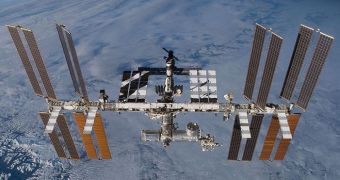A new report by the US Government Accountability Office (GAO) sheds lots of doubts on the International Space Station (ISS) and its potential to bring a return on American investments. The Office believes that the 25 years and billions of dollars that the United States have put in the station may have been misplaced, in the sense that the body does not see how the orbital facility, currently scheduled for retirement in 2015, could generate a return on the investment.
A large portion of the concerns stems from the fact that only now are the major players in the ISS project, including Russia, Europe, Japan and Canada, beginning to consider schemes to keep the station going beyond its 2015 deadline. “The uncertainty of the ISS program beyond its 2015 retirement date has deterred members of the scientific community from considering the station as a platform for fundamental research,” the new GAO report states, according to Discovery News.
Another concern that the Office has is the fact that NASA is poised to retire the space shuttle fleet at the end of next year, which means that the international partners in the ISS will be left with no means of carrying large, scientific experiments to the station. The American space agency plans to enlist the help of private companies such as Space Exploration Technologies and Orbital Sciences Corp. for the job, but the task ahead is difficult. The companies will have to build freighter space capsules and even manned capsules, capable of ensuring that the US has space capabilities until Project Constellation rolls out, in 2015 or 2016.
According to NASA, the main problem in operating the ISS is funding. In 2002, the agency had more than $750 million a year for the ISS, whereas this year it had only $150 million. This significant reduction in alloted fundings essentially ties its hands, officials at the space agency say. Additionally, more than half of the laboratory space on the station is American. NASA is currently looking at ways of commissioning this space to other entities, in a bid to cut down costs and encourage more scientific projects to be conducted on the facility.
The full GAO report is available here (.pdf file)

 14 DAY TRIAL //
14 DAY TRIAL //